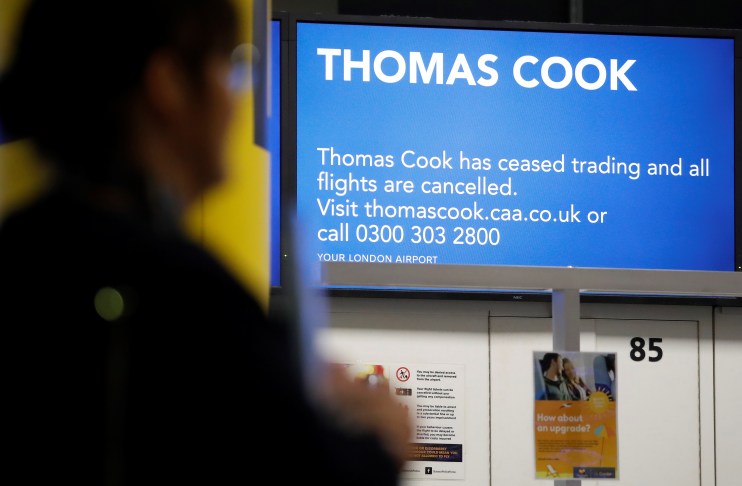Thomas Cook collapse: Assets under the hammer as liquidators move in

Collapsed airline Thomas Cook will be sold as a whole or in parts after it went into liquidation this morning, the firm’s second largest shareholder has said.
Neset Kockar, boss of Turkish holiday group Anex Tour, owned a near-eight per cent stake in the travel giant when it went under.
Read more: Tui share price soars as rival Thomas Cook bites the dust
He said: “Thomas Cook owes “a few hundred million pounds” to Turkish businesses that may not be paid after it is sold.
Restructuring specialist Alixpartners has been appointed to manage the liquidation process, which involves selling off the company’s assets to repay its creditors as best it can.
Thomas Cook’s German and Nordic subsidiaries will continue trading as normal. From a legal standpoint, they are separate to the British parent firm and are therefore not under the UK Official Receiver’s jurisdiction.
But with a raft of shared services with the collapsed parent company such as aircraft and IT, they will need to organise rescue deals to continue operating.
Meanwhile, assets like its combined 560 take-off and landing slots at Gatwick and Manchester are likely to be snapped up by other airlines over the coming months.
In late 2017, British Airways bought 20 prime take-off and landing slots from collapsed airline Monarch at Gatwick and Luton. That deal was worth an estimated £60m.
Barclays analysts said: “As well as opportunity for holiday peers such as Tui, Jet 2 and On the Beach to take further share of the package holiday market, the overlap with the airlines is largest for Lufthansa (Eurowings), Easyjet and Ryanair.
A spokesperson for ACL, the company which coordinates airport slot sales in the UK, said Thomas Cook’s operating license was “still valid” despite the firm having gone into liquidation. This is to make sure the slots stay available for repatriation flights by the Civil Aviation Authority.
Read more: Thomas Cook goes bust: How did it end up like this?
One market source told City A.M. that while the assets would be sold off, “the question is at what price. It would be a distressed sale so the assets [are] unlikely to achieve a premium”.
But, they added, the slots were likely the most attractive. They said: “I’m sure that given the distressed assets there will be plenty sniffing around slots, in particular.”